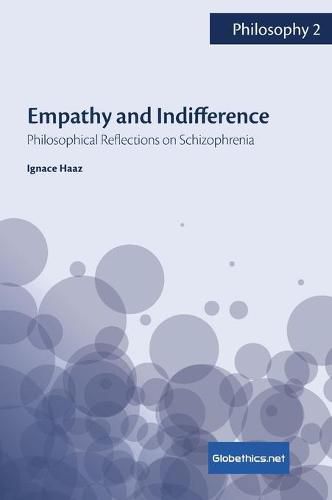Readings Newsletter
Become a Readings Member to make your shopping experience even easier.
Sign in or sign up for free!
You’re not far away from qualifying for FREE standard shipping within Australia
You’ve qualified for FREE standard shipping within Australia
The cart is loading…






This title is printed to order. This book may have been self-published. If so, we cannot guarantee the quality of the content. In the main most books will have gone through the editing process however some may not. We therefore suggest that you be aware of this before ordering this book. If in doubt check either the author or publisher’s details as we are unable to accept any returns unless they are faulty. Please contact us if you have any questions.
As a student of philosophy, directed by Prof. Roberta de Monticelli at the University of Geneva/Milano, I first followed the school of ethical philosophy of phenomenology (Scheler, Husserl, etc.) with great enthusiasm, which bases ethics on an analysis of lived experience, empathy and compassion, that is, a basic understanding of the Golden Rule. In the midst of my studies, however, I was caught up in the concrete constraints of life, meeting a sick person who no longer had the ability to feel correctly the relationship to the other, as it is the case in schizophrenia. How can we continue to live with others when we share the same space, but that person isolates himself from a common world of experience (which philosophers call koinos kosmos)? Our work focuses on an anthropological approach to mental illness, describing how schizophrenia can distort our experience of empathy and of the presence in the world through pathological indifference. We describe factual and phenomenological perspectives on a case of schizophrenia, based on the method of Eugene Minkowski (1885-1972).
This book focuses on an anthropological approach to mental illness, describing how schizophrenia can distort one’s experience of empathy and of the presence in the world through pathological indifference. It describes factual and phenomenological perspectives on a case of schizophrenia, based on the method of Minkowski, at the intersection of holistic understandings of the human being (as the Gestalt, or phenomenology), building on a Bergsonian understanding of the human becoming.
$9.00 standard shipping within Australia
FREE standard shipping within Australia for orders over $100.00
Express & International shipping calculated at checkout
This title is printed to order. This book may have been self-published. If so, we cannot guarantee the quality of the content. In the main most books will have gone through the editing process however some may not. We therefore suggest that you be aware of this before ordering this book. If in doubt check either the author or publisher’s details as we are unable to accept any returns unless they are faulty. Please contact us if you have any questions.
As a student of philosophy, directed by Prof. Roberta de Monticelli at the University of Geneva/Milano, I first followed the school of ethical philosophy of phenomenology (Scheler, Husserl, etc.) with great enthusiasm, which bases ethics on an analysis of lived experience, empathy and compassion, that is, a basic understanding of the Golden Rule. In the midst of my studies, however, I was caught up in the concrete constraints of life, meeting a sick person who no longer had the ability to feel correctly the relationship to the other, as it is the case in schizophrenia. How can we continue to live with others when we share the same space, but that person isolates himself from a common world of experience (which philosophers call koinos kosmos)? Our work focuses on an anthropological approach to mental illness, describing how schizophrenia can distort our experience of empathy and of the presence in the world through pathological indifference. We describe factual and phenomenological perspectives on a case of schizophrenia, based on the method of Eugene Minkowski (1885-1972).
This book focuses on an anthropological approach to mental illness, describing how schizophrenia can distort one’s experience of empathy and of the presence in the world through pathological indifference. It describes factual and phenomenological perspectives on a case of schizophrenia, based on the method of Minkowski, at the intersection of holistic understandings of the human being (as the Gestalt, or phenomenology), building on a Bergsonian understanding of the human becoming.